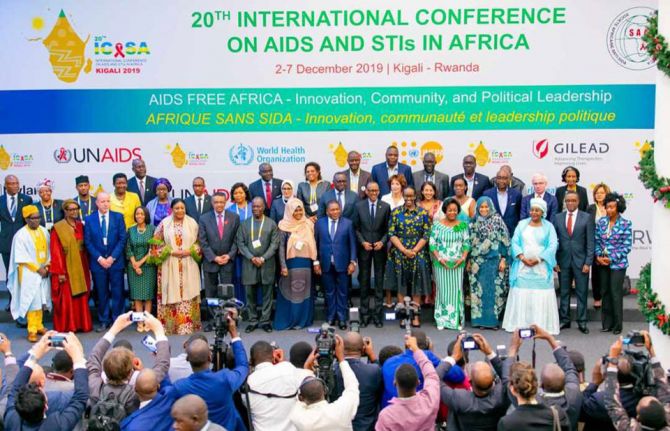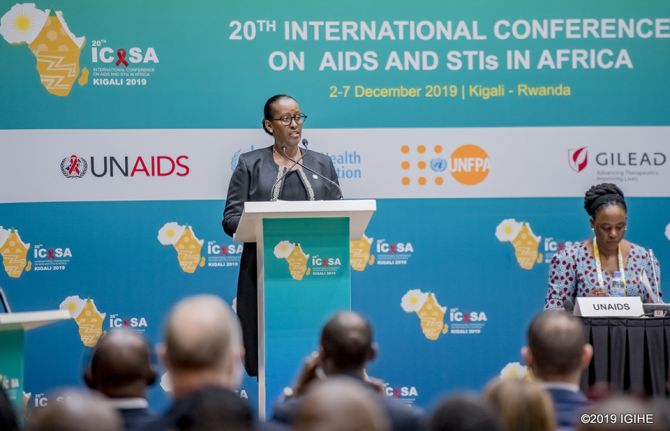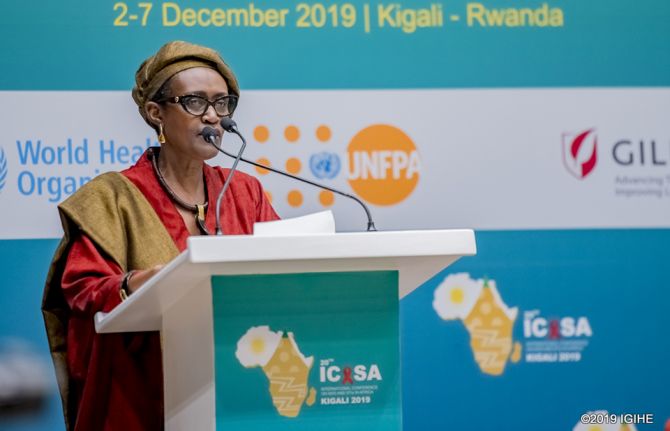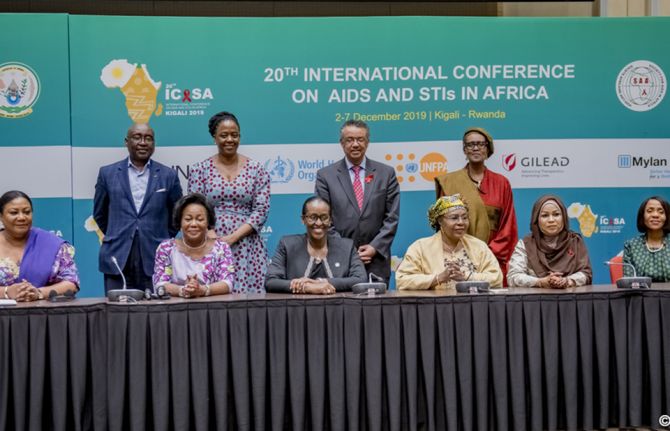




Feature Story
ICASA conference opens in Rwanda with an emphasis on African leadership
03 December 2019
03 December 2019 03 December 2019The 20th International Conference on AIDS and STIs in Africa (ICASA) opened in Kigali, Rwanda, on 2 December, under the theme “AIDS-free Africa―innovation, community and political leadership”.
Researchers, governments, civil society and other stakeholders, such as UNAIDS and its Cosponsors, are gathering for a week to share scientific advances, best practices and lessons learned, and to galvanize political leadership and action.
The President of Rwanda, Paul Kagame, encouraged African leaders to prioritize domestic financing for health care. “Good politics and governance have everything to do with health,” said Mr Kagame. “There is no substitute for building an inclusive and caring society.”
Rwanda, a country of 12 million people, has an HIV prevalence of 2.5% and 220 000 people living with HIV. Some of its sub-Saharan African neighbours have an HIV prevalence as high as 20% and millions of people living with HIV, making HIV very much a reality for the continent.
At the opening ceremony, the President of Mozambique reiterated the importance of political leadership. “We need leadership to convey the right messages and our brothers and sisters to test for HIV and seek treatment,” said Mr Filipe Nyusi. He added that a community approach can improve service uptake.
This was a sentiment echoed by the World Health Organization (WHO). “Since the early days, communities have been the driving force of the AIDS response,” said the WHO Director-General, Tedros Adhanom Ghebreyesus. He added, “Our job as leaders is to listen to communities and what they need, not to tell them what they need.”
The conference opened a day after World AIDS Day 2019. This year’s theme recognized the essential role that communities have played and continue to play in the AIDS response at all levels. UNAIDS highlighted the essential role of communities at a time when reduced funding and a shrinking space for civil society have put the sustainability of services in jeopardy.
Winnie Byanyima, the UNAIDS Executive Director, stressed throughout the day’s sessions that resources must flow to communities and civil society. “To people living with HIV, the question of resource mobilization is a question of life and death,” Ms Byanyima said at an African leadership meeting on investing in health. “When the money from donors dries up, will there be enough money for people’s treatment?” she asked. “This is why the prevention agenda is critical.”
